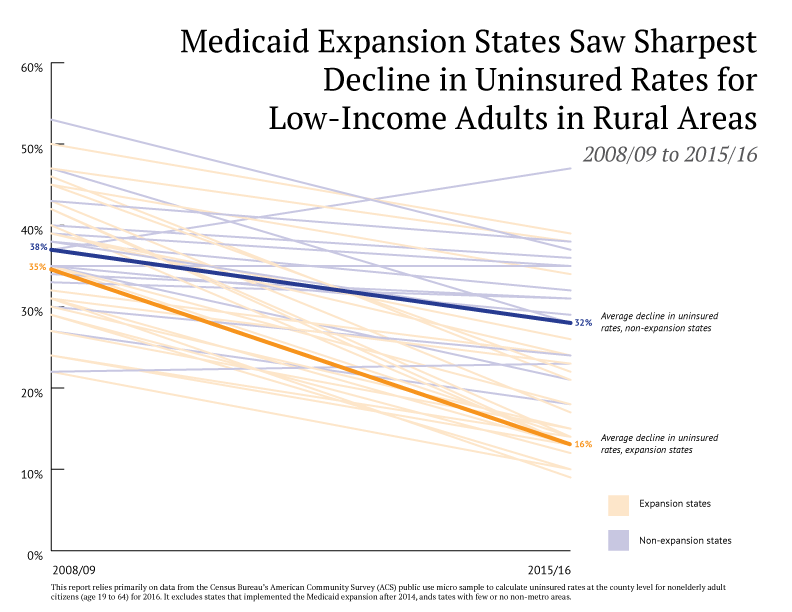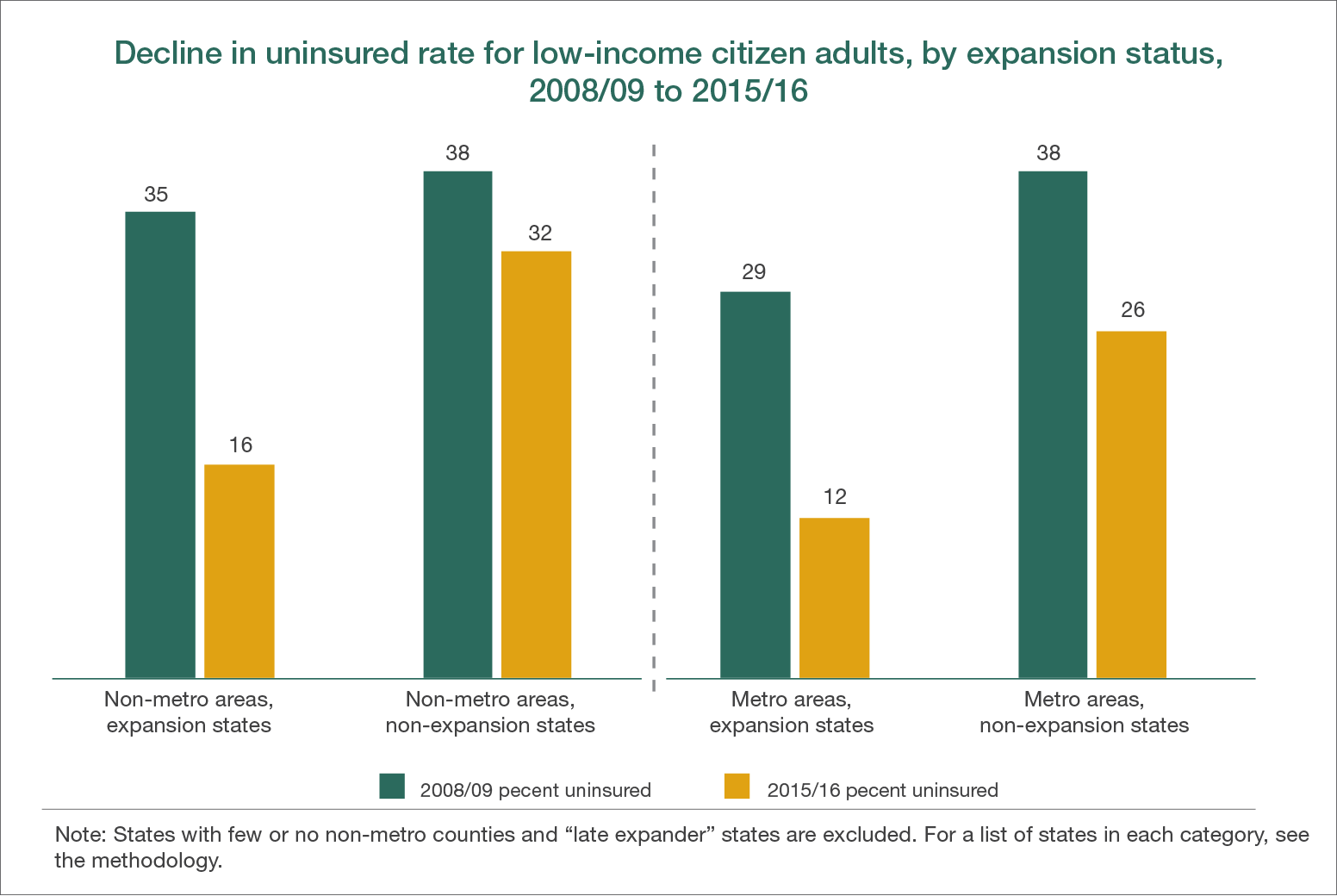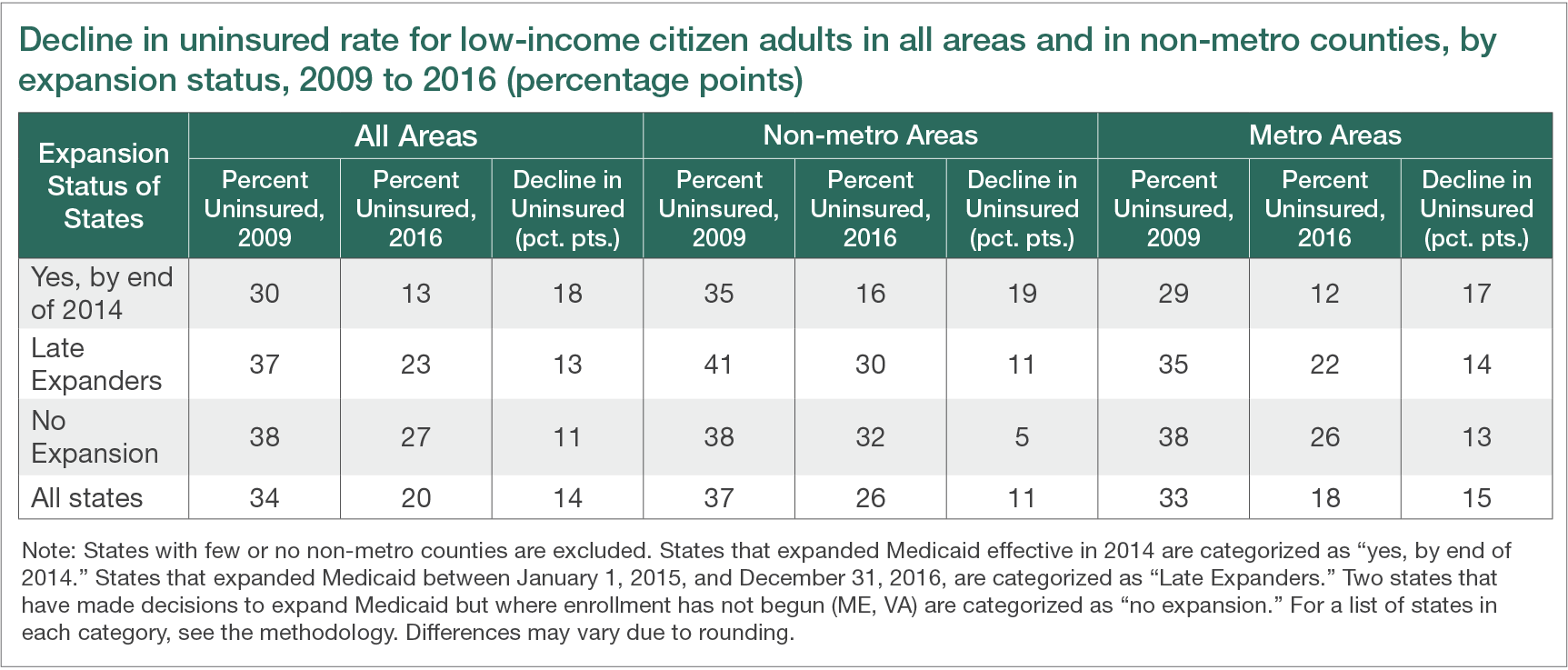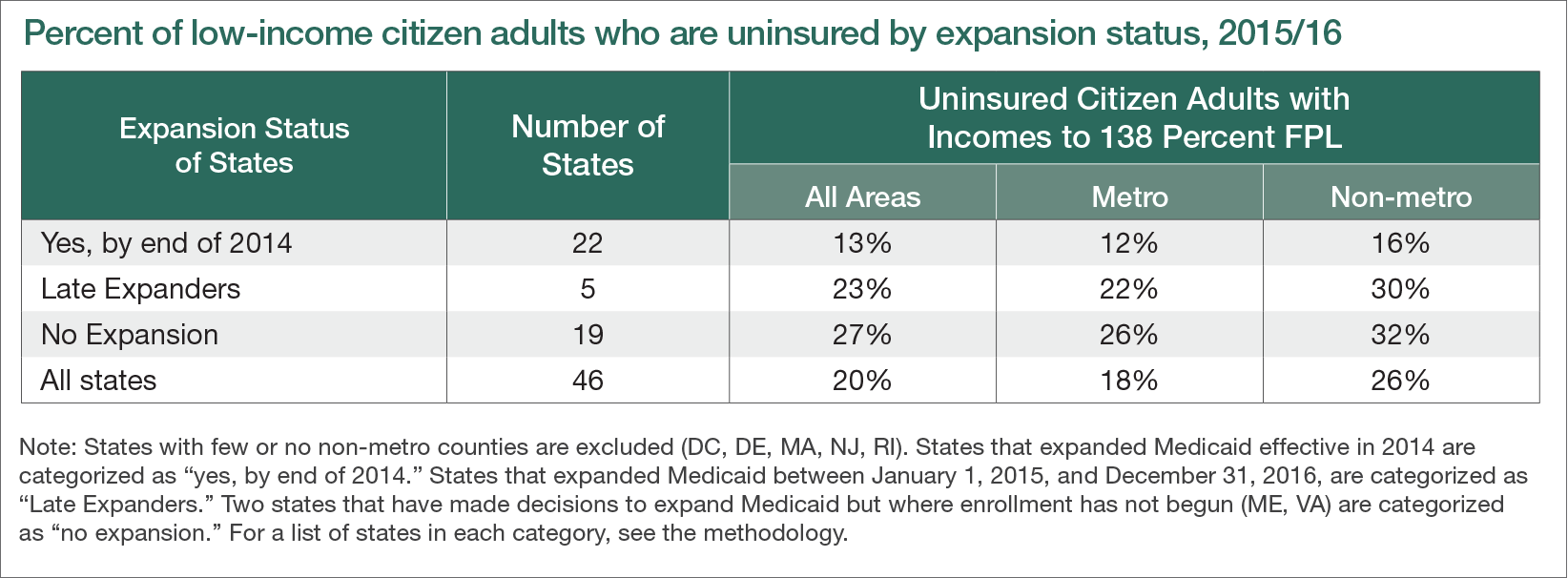Medicaid expands access to care and supports the use of preventive services – essential steps to improving long-term health. The program is especially crucial to Americans in small towns and rural communities, who often face major barriers to access quality health care services—lower incomes and limited transportation options.
Fortunately, Medicaid has been able to better serve these communities by reducing the number of uninsured Americans. According to a new study from the Georgetown University Center for Children and Families and the University of North Carolina Rural Health Research Program, small towns and rural communities in Medicaid expansion states have seen the sharpest declines in uninsured rates.

Here are some key findings on how Medicaid makes a difference:
- The uninsured rate dropped from 35% to 16% in rural communities and small towns in Medicaid expansion states. People in small town and rural communities are more likely to be uninsured, which is a major barrier to accessing quality care services.

- The uninsured rate of low-income adults in states that expanded Medicaid was 13%, compared to 27% in states that did not expand Medicaid. This provided adults with more flexibility when it comes to receiving health care coverage.

- When parents have insurance coverage, their children benefit by having a more financially stable home. Notably, one-quarter of uninsured low-income adults are parents, which improves the health and well-being of their children. This improves household stability and financial security for parents and their children by providing protection from medical debt.

Millions of Americans in rural communities depend on Medicaid to help keep them healthy. Currently, 23 percent of adults and 47 percent of children in rural areas across the country are enrolled in the modern Medicaid program. The Modern Medicaid Alliance has highlighted the importance of Medicaid to rural Americans through an infographic and an insightful interview with Diane Calmus of the National Rural Health Association, a Modern Medicaid Alliance member.